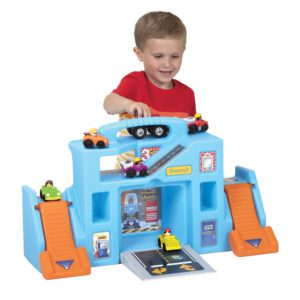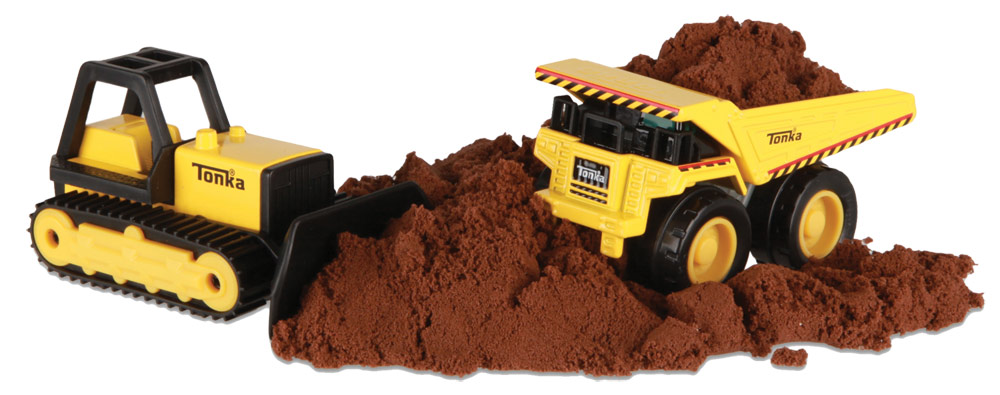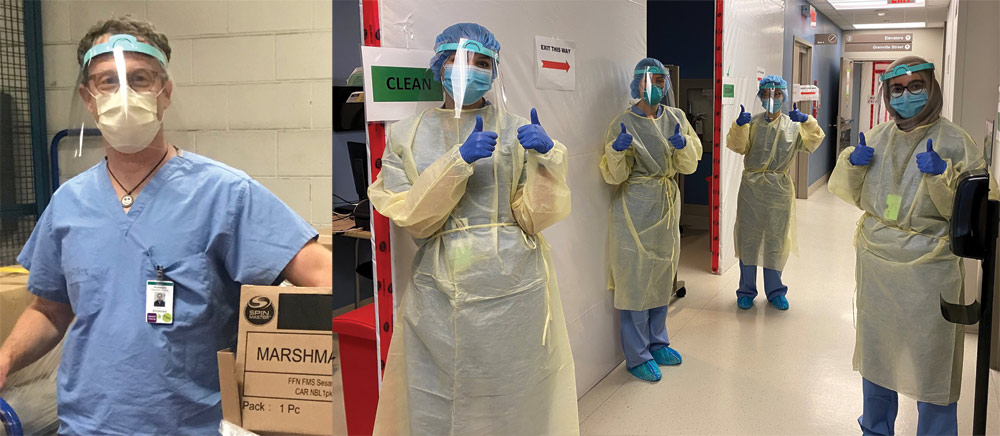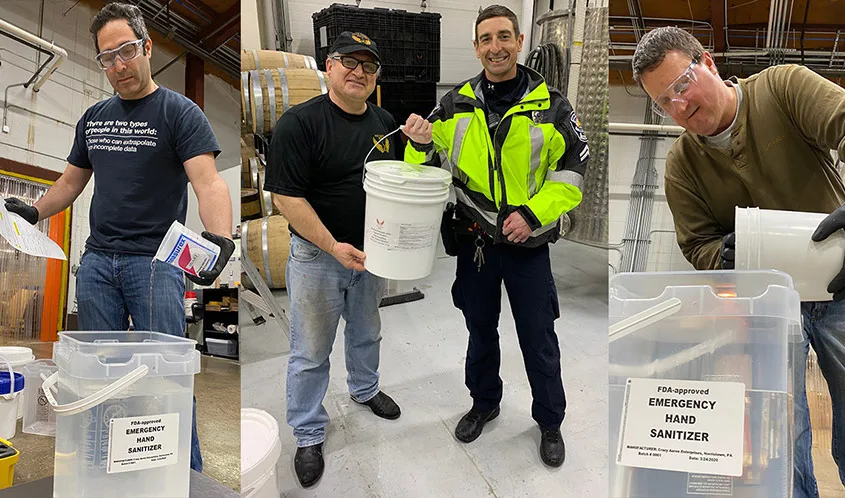Another year, another new and unexpected challenge.
For the third straight year, the toy industry entered Toy Fair New York (TFNY) facing uncertainty caused by very fluid external factors. Following retail bankruptcies, store closures, and the on-again, off-again threat of tariffs on toys, the novel coronavirus disease known as COVID-19 became the latest test to the resilience of an industry that’s rooted in the business of play.
First identified in Wuhan, Hubei, China on Dec. 1, 2019, COVID-19 is caused by a virus identified as SARS-CoV-2. Its fast-spreading nature and need for containment brought quick fears of a disruption in manufacturing operations and the supply chain related to the global toy industry due to the volume of production conducted in Mainland China.
What few, if any, were predicting — or even considering — during TFNY was that the U.S. and the rest of the world would wind up facing a global pandemic.
THE RIPPLE EFFECT BEGINS
Ahead of TFNY, The Toy Association and the China Toy & Juvenile Product Association made the call to cancel the China Pavilion in New York. Attendees from China, unrelated to the Pavilion, were subject to the U.S. travel ban enacted to slow the spread of the virus.
The first hint of business disruption emerged just as TFNY was getting underway as several companies reported issues receiving product samples and prototypes from China. Meanwhile, a number of seasonal manufacturers expressed concern that new products may not hit U.S. shores by summer. Others reported disruption lasting only a few weeks, but some weren’t quite sure.
By the close of the annual trade show, the consensus was that some new toys intended to launch this fall would be bumped to the following spring. While some companies declined to go on record due to the ever-changing nature of the crisis, they stated that they would attempt to mitigate impact internally without passing the cost onto consumers.
“We would have typically been finishing our production right after Chinese New Year, but with COVID-19 impacting the return of workers to the factories, we have seen a 60% decrease in production capacity since our factories reopened in late February,” said Dave Balkaran, president and head of sales at Salus Brands in early March.
Initially, it was suspected that smaller companies might be able to navigate supply chain challenges quicker because they are more nimble by nature. The major players quickly began bracing for big hits in the months ahead.
“[The] coronavirus has resulted in disruptions and damage to our business, caused by both the negative impact to our ability to design, develop, manufacture, and ship product (the supply side impact) and the negative impact on consumer purchasing behavior (the demand side impact),” Hasbro wrote in a statement filed with the U.S. Securities Exchange Commission. The company added that “prolonged adverse public health conditions” could “substantially harm the business” in the long term.
In a widely circulated LinkedIn post, MGA Entertainment Founder Isaac Larian said that the factory closures were “the worst supply chain disruption” that he’s seen in his entire career; and rival Mattel took a similar stance: “The full magnitude of the impact of the coronavirus on our full-year results will be primarily determined by the duration of the outbreak,” stated CFO Joseph J. Euteneuer.
DAYS OF UNCERTAINTY
For companies worldwide, much of the future outlook laid out during TFNY was thrown out in favor of a “wait-and-see” approach based on guesstimation and anticipation influenced by unknown variables. With the virus spreading beyond Asia and across Europe and the U.S., the toy industry was presented with a wild card situation of unpredictability and circumstances that change by the day due to unknown variables.
Spin Master and Funko were among the first companies to completely withdraw their financial guidance for the year — a move that would be echoed throughout the industry.
“It is a fast-evolving situation, and it is quite hard to anticipate the impact on the business — even more to preempt solutions,” notes Marie Bureau, creative director of Le Toy Van, a UK-based company known for its sustainable wooden toys. Le Toy Van dodged immediate disruption, as its products are manufactured in Indonesia using materials sourced from a company-owned forest.
NEVER FEAR, TOYS AND GAMES ARE HERE
In the short-term, much of the discussion leaned toward a shortage of new toys at retail this year. Several companies stepped up to fill the gap, many of which produce toys outside of China or here in the U.S., or had inventory on hand and ready to ship. Oddly enough, last year’s threat of tariffs from the Trump administration inadvertently helped some toymakers prepare for a crisis that no one was predicting.
“We took a calculated risk late in Q4 2019 and decided to move up our spring/summer production in order to bring inventory in ahead of the proposed tariff increases that were scheduled to impact us this past December,” says Salus Brands’ Balkaran. “We worked out that the financial impact of the additional storage cost was dramatically less than the proposed increase in tariffs for the inventory that we had projected we needed for Q1 and Q2 2020. As such, we are in a strong inventory position to support our customers for the next few months.” The Salus assortment includes the Original Super Cool line of slime and putty, CocoNut Floats, KeiKi Ukuleles, PopOhVers, and Stack-a-Roos.

The Simplay3 Co. produces a full range of plastic toys, including wagons, ride-ons, climbers, desks, play kitchens, playhouses, and more, at its factory in Streetsboro, Ohio. Brian McDonald, vice president of sales and marketing, says that by early March an increasing number of retailers had begun inquiring about sourcing product from Simplay3 to replace Chinese products that will not make it to the shelf.
“Our production capacity is available to fill orders, and we are planning for another great growth year; but, we build to forecast,” McDonald says. With that in mind, Simplay3 needs about a month of lead time to respond with inventory.
Bryan Mundell, founder and owner of Adventerra Games, says that COVID-19 has had “zero effect thus far” on the company’s business. Adventerra, which maintains a corporate mission to reduce greenhouse gas emissions and clean up the planet, prints its environmentally focused titles, such as Watergame and Recycle Rally, at a facility in Poland.
Other European toymakers, such as Playmobil, Bruder, LEGO, and Le Toy Van also shipped product to the U.S. prior to the global spread of COVID-19.
THE IMPACT HITS
Florida-based Basic Fun!, which sources nearly 90% of its product from China, also brought in higher-than-usual shipments last fall due to the Trump tariff threat. Ahead of TFNY, Basic Fun! CEO Jay Foreman said that the company had a buffer of excess inventory to keep retail moving. The additional stock paired with big initiatives, including the relaunch of the Tonka brand, led Basic Fun! to one of its best first quarters on record, but the supply chain hiccup paired with future outlook led the company to be one of the first to make staffing cuts.

“As any reasonable business should be doing, we have to right-size our overhead in anticipation of what could be a slowdown in either supply from China or consumer demand globally,” Foreman says. “Several public companies had already announced job cuts in Q4. We held off as long as we could, but have cut 10% of our staff. We will adjust by everyone working harder and more efficiently.”
By mid-March, the spread of COVID-19 began increasing across the U.S. — an unprecedented event triggering an unprecedented response. After being declared a pandemic by the World Health Organization, the disease was deemed a National Emergency in the U.S. Shelter-in-place or stay-at-home orders had been issued in most cities and states with restrictions on public gatherings put in place as social distancing guidelines took shape. Schools were closed and most companies — including those in the toy industry — began shifting to a remote workforce.
HITTING THE PAUSE BUTTON
The closing of all retail and services, except for those deemed “essential,” was feared to have effectively put the brakes on toy sales. Even Amazon temporarily stopped accepting shipments of non-essential goods to its warehouses as it focused on consumables and other categories for several weeks.
With factories in Asia approaching 100% of their pre-virus production output, the concern shifted from supply issues to demand issues as families began adjusting to working and learning together at home.
Following an initial report of shipping declines that included a forecast for a May spike, the National Retail Federation (NRF) and Hackett Associates’ Global Port Tracker estimates double-digit declines in retail shipments through at least August.
“Even as factories in China have begun to get back to work, we are seeing far fewer imports coming into the U.S. than previously expected,” says NRF Vice President for Supply Chain and Customs Policy Jonathan Gold.“ Many stores are closed, and consumer demand has been impacted with millions of Americans out of work.”
Like dominoes, plans for major events have fallen as cancellations and postponements continue marking the calendar. Major industry events, including Licensing Expo, the American Specialty Toy Retailing Association (ASTRA) Marketplace & Academy, E3, and Comic-Con International: San Diego (SDCC) were completely canceled.

EVOLVING MANUFACTURING TO DO GOOD
Heading into April, toy and game makers jumped into the ring to join the battle against the virus.
Crazy Aaron’s, creators of Thinking Putty, shifted its production line over to FDA-approved, emergency hand sanitizer while Hasbro, Mattel, MGA Entertainment, Playmobil, Spin Master, and more began creating and/or sourcing personal protective equipment (PPE) or other supplies for healthcare workers. Numerous companies launched free resources for families in addition to donating time, funds, products, or technology to people and organizations working to keep the world running.
THE ROAD AHEAD
In just a few months, the toy industry has been hit with layoffs, furloughs, and overall uncertainty that mirrors the plight of nearly every business right now.
In looking for a silver lining, the industry emerged from TFNY with a great deal of positivity around an abundance of new products in the pipeline, particularly for the holiday season.
Kids being out of school and families spending time together has created new opportunities for sales. Local toy stores, which have been hit hard by a loss of foot traffic, have adjusted by offering personal services, such as contactless curbside pickup and delivery. Online sales are increasing across the board, and many big box stores — which have benefited from remaining open to sell groceries and other essentials — have been a resource for families to stock up on toys during weekly grocery runs.
According to The NPD Group, retail sales for toys in the first quarter increased 7.6% driven by sales of games and puzzles, arts and crafts, and outdoor toys.
On the same day that NPD numbers were released, Hasbro kicked off earnings season with surprising results. Despite taking a hit in global revenue, sales for the U.S. and Canada spiked 20% thanks to classic games such as Connect 4, Operation, and The Game of Life; strong sales from Play-Doh; and licensed product from properties including DreamWorks Trolls World Tour and Star Wars: The Mandalorian.
While both Hasbro CEO Brian Goldner and Funko CEO Brian Mariotti caution that the real challenges of this year will be faced in the second quarter due to retail closures being more widespread, the toy industry will evolve to adapt and overcome these just as it’s done with challenges of the past. It just might take a little more time, patience, and a bit of optimism to make it through.
This article originally appeared in the April/May 2020 issue of the Toy Book. Click here to read more!

